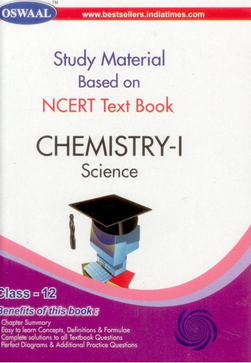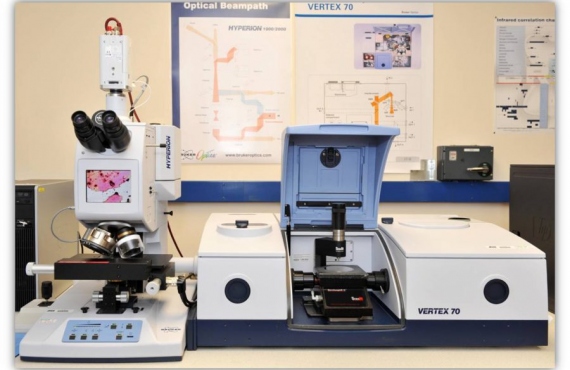There has been a lot of focus lately to encourage children to get back into science. Over the years a trend had come to prominence where children were seen to shy away from the scientific subjects of choice in their senior class with a notion that science is supposedly difficult. However it is important to inculcate the scientific temper in individuals and teaching Science in school is one of the ways of doing that. For instance, when we take a look at Chemistry as a subject in school, we think of it as a vague, unrelated subject that is full of complex equations and mindless materials that we would possibly never use in life. The reality is very different though. In fact, Chemistry as a subject finds place in our everyday life. There are many things that people may not be aware of which involves Chemistry that we use in our day-to-day existence. By learning chemistry one can broaden one’s outlook and appreciation of the world around you and also pave the way to newer prospects.

So how does one cope with Chemistry in the nascent stage? Below are some tips that would help you accept and adopt Chemistry in your curriculum and life in general.
Highlight key points: – When you get the course book from school, usually provided by NCERT, browse through the course content in detail so you know what to expect during the term. You may not understand the depth of it but it will give you a good idea of the horizontal spread for the subject. When you study from the book, use a colorful highlighter to mark important parts of the text. This would act as a visual aid that will guide you whenever you get to that page. NCERT chemistry solutions also has the important points and summary of each chapter in the book. This helps in faster recollection for students and hence is the most preferred resource by choice.
Brush up for your math: There are number of formulas and equations that students need to remember in chemistry. If at this stage if one is not very adroit in Maths, it is advisable to get some practice hours on your side. It will help when you’re solving equations and other Chemistry coursework.
Experimenting in labs: Chemistry is essentially a discipline that encourages lab-centric work. Performing experiments in laboratories can enhance the talents as well as appreciation of the subject. Try to correlate between lab experiments and content of studying material and text. Pay attention to pre-lab and after-lab work and try to correlate the lab experiments in order to learn chemistry proficiently. There’s no replacement for hands-on experience. It strengthens our abilities of Chemistry in a functional environment.
Read the topic before the class: A good study plan generates awareness about the requirement of the addition of study material or changes in the methods of preparation and a better identification of the ways to prepare for the areas that require more attention. Read the topic before going for the class. It helps in understanding the whole topic faster. It enables you to perform better in the subject and boosts the spirit of competency in you.
Use Flashcards: The course is full of Chemical symbols, Chemical formulation and really scientific language. Decoding all of these ideas adequately is key to your success in Chemistry. Although this may seem like an obvious factor, colossal numbers of pupils fail Chemistry each year since they underestimate the requirement of understanding the subject rather than just memorizing the equations and formulae. Use flashcards for organizing and storing chemical symbols and formulae.
After you have created an excellent set of flashcards containing the periodic elements and formulae, you will not need to try hard at memorizing them. Discovering formulation seems to be a herculean task for the various pupils. However it isn’t so and studying formulae in this fashion can even be enjoyable and handy.
Study in graphical method: when students interact with Chemistry structure of molecule in more than one ways, they are competent to approach structure and its meanings in more mighty means. Graphical finding out can aid to be taught matters in a less complicated manner. Think 3-dimensionally, it is recommended to make graphs while doing chemistry. A graph gives us a greater suggestion of dependence of two variables on each other.
Try to understand the concept rather than Memorizing: William James mentioned, “The essence of genius is to know what to overlook.” You ought to be selective with what you memorize. Once we learn, efforts must have our center of attention on understanding ideas rather than memorizing each element. As soon as now we have gathered the foremost details, we will enforce this selective reminiscence method. In Chemistry, it’s essential to put in writing down the whole lot and have an understanding of what you taking notes on.
Good study place: A good study environment is highly recommended. The special place that you have designated for study should be uncluttered and should provide minimal distraction to allow maximum concentration. Also instead of sticking to one study location, simply altering the room where a person studies, improves retention. Picking the right study environment means picking a place where you feel “in the zone” and free of distractions.
Study in groups: Find a group of dedicated students with whom to study. A group study session is an ideal time to review and compare notes, ask each other questions, explain ideas to one another, discuss the upcoming exam and difficult concepts, and, when appropriate, delegate study tasks. Do set an agenda and a specific time frame for your group study session, so that your work together doesn’t veer off-topic.
Ask questions: You can’t learn something if you don’t ask questions! When you’re doing homework, bookmark questions you don’t understand so you can ask about them the next day. Make sure to pay attention in class, and don’t be afraid to ask the teacher to repeat an explanation or problem that you don’t understand.













Comments are closed.